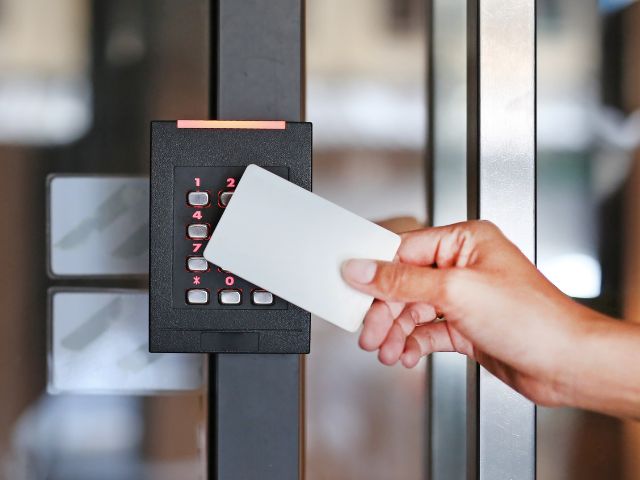

Today, the demand for more sophisticated, multilayered security systems is at an all-time high, and access control lies at the heart of it. Whether you’re a security professional, an administrator, or a business owner, understanding the strategic importance of access control in these key spaces is vital for safeguarding assets and ensuring peace of mind. However, you must first understand these 5 places where access control is essential.
With the ever-present concern for personal safety, communities and apartment complexes are increasingly turning to advanced access control systems to monitor and regulate entry. Smart locks, key fobs, and biometric systems inhibit unauthorized access and provide residents with a sense of security. Effective access control streamlines visitor management, provides a record of entry and exit, and allows remote access management, giving homeowners and landlords a level of control that traditional locks cannot match.
For businesses, the ability to control and monitor who enters their premises protects against theft and ensures the safety of employees, customers, and visitors. Access control systems help prevent loss by tracking and managing customer and employee access to the inventory and cash-handling areas. Office buildings equipped with access control systems enjoy the benefits of managing employee access levels, tracking attendance, and securing sensitive areas such as IT server rooms or HR departments.
Access control in schools, colleges, and universities is essential to safeguard students and staff against unauthorized individuals, ensuring fast and efficient threat containment in an emergency. Access control systems are instrumental in managing traffic flow during peak hours, enhancing the efficiency of staff entry and exit, and addressing concerns related to vandalism or theft. By making schools safer with security technology, educational institutions can provide a safe environment that fosters learning without fear.
For hospitals, clinics, and other healthcare facilities, access control plays a crucial role in ensuring that only authorized personnel can obtain patient information or enter restricted areas, such as operating rooms and drug storage units. Effective access control improves patient safety and supports compliance with privacy regulations. Healthcare institutions leverage access control technology to manage visitor access, prevent the unauthorized release of information, and even protect research and pharmaceutical developments.
Government buildings and public spaces are often high-profile targets for terrorism and other security threats. Access control is a non-negotiable aspect of security in these areas, helping to prevent unauthorized individuals from entering and ensuring that those who do enter are screened and accounted for. Implementing access control in these spaces is about protecting and maintaining the social fabric.
In today’s world, access control is essential across a diverse range of places and environments. It is not merely a physical barrier but a multi-functional tool to deter, detect, and document security incidents. By recognizing the unique needs and benefits of access control in these settings, decision-makers can tailor solutions that fortify security and provide unparalleled peace of mind.
24World Media does not take any responsibility of the information you see on this page. The content this page contains is from independent third-party content provider. If you have any concerns regarding the content, please free to write us here: contact@24worldmedia.com
